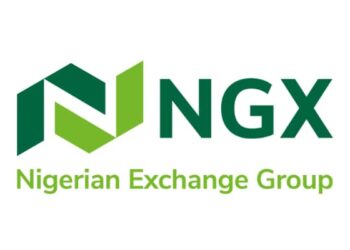The coronavirus (COVID-19) pandemic so far has negatively affected the global economy and more severely developing nations of Africa particularly Nigeria. The COVID-19 has been devastating in terms of the impact on Nigeria’s economy, businesses, and households and still not looking abated. We have seen a troubling trend in the country in recent times, with, businesses and activities today facing increasing levels of competitive pressure and difficulties, coupled with persistent insecurity, and inflationary pressure where high price increases have continued in transportation, food cost, household needs, raw materials, pharmaceutical products, motor cars, vehicle spare parts, equipment, and in prices of services amongst others. The cost and price of virtually everything are much higher today, and it is because of inflation.
Inflation is not only a serious problem but also it has a disturbing effect on the economic life, political system, and society as a whole, it has a corrosive impact on all savings and investments. Significantly every price rise is affecting the cost of living and many citizens are likely to be further pushed below the poverty line due to this price increase.
So far in the year 2021 in Nigeria, we have seen a situation where the value of money continues to depreciate in terms of value, and the general price level of goods and services continues to spike and skyrocket. The uncertainty in the country is rather high and this has continued to discourage investments and impede projections and business plans because with persistent inflation, businesses and households perform poorly, and expectedly more money is paid for the same goods and services thereby eroding a large chunk of disposable income of the populace. Infact one of the obvious issues facing the Nigerian economy today is inflation which is persistently a complex issue that government needs to tackle headlong.
It is important to note that one million naira (N1,000,000) today will not acquire the same value of investment, goods, and services in 10 years mainly due to this price increase. The fact is that it is bad for people to hold huge cash – or keep funds in current or savings accounts, which usually do not offer much of a return at this time. Without a doubt, a continuous increase in the rate of inflation erodes the value of money, even slow down financial market development, infrastructure development, economic development in any clime. It also increases poverty, lowers purchasing power, increases unemployment surge, weakens currency, increases business risk and these are somewhat evident in the country already. It is well documented in the literature and practice that inflation if left unchecked or unattended can even lead to more inflation- hyperinflation.
However, investment is one of the important channels to curb the excessive impact of inflation in any economy therefore, regardless of current realities investment is key to hedge against the sharp inflation impact we are currently experiencing. For individuals, investing for inflation means choosing assets that keep pace with rising prices. Therefore, it is imperative to consider investment at this time, it is more profitable to invest in other currencies, diversify investment portfolio internationally to include shares of big tech and companies with high dividend payments. More importantly, inflation-protected investments such as real estate (property and land) with potential for higher growth can be considered. This is not the time for substantial investments in domestic equities and/or money market instruments unless the anticipated return is higher than the inflation rate which is hovering around 18.17% as at March 2021 relying on data from Nigerian Bureau of Statistics (NBC).
In addition, Gold investing or Gold Shares Exchange Traded Fund(ETF), or professionally managed mutual funds with returns above the prevailing inflation rate can also be considered, all to mitigate the impact of inflation at this time.
The government on the other hand needs to provide a low inflationary environment, this can be achieved by improving on the ease of doing business and handling of the perennial challenges from incessant insecurity, inadequate infrastructure, the severe and irregular regulatory requirements, to a high sense of entitlement, high cost of running business, corruption and the current macroeconomic uncertainty among others in the country. Currently, as a nation, Nigeria is losing its natural advantages to neighboring countries because of these challenges and this development is disturbing. Sending very little hope of economic development and growth of foreign private investment which is made up of Foreign Direct Investment (FDI) and Foreign Portfolio Investment (FPI), Foreign Direct Investment is often preferred as a means of boosting the economy and that it plays a positive role in the improvement of economic activities. Truthfully theirs an obvious linkage between FDI and economic growth, consequently the government of the day should make conscious efforts to provide a more enabling business environment and also issue incentives and policies to attract foreign private investment. There are benefits foreign private investment can offer Nigeria which includes the transfer of innovative technology, higher productivity, capital injection, more revenue for government through taxes, enhancement of balance of payments ability, employment generation, diversification of the industrial base and expansion, and even the modernisation of some existing infrastructure.
There is also a compelling need to support, and further consider the Small and Medium-sized Entreprises (SMEs) to improve manufacturing, production, and services to exportable level in the country. By so doing, it will reduce the pressure on import-dependency and improve the country’s business climate and also play a significant role in export growth in the country. Consequently, steps to attract more investments are key at this time and the Nigerian government can use this as one of the ways of boosting the economy and stem inflation. It is recommended that overreliance on imports should be reduced over the long term through aggressive export promotion and key SME development drives which when considered will improve the competitiveness of domestically produced goods. Good luck.
How may you obtain advice or further information on the article?





